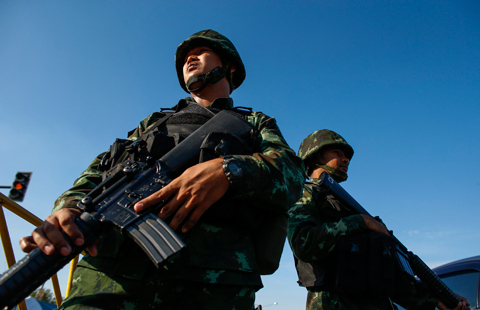Threats haunt Afghan vote
By Agence France-Presse in Kabul (China Daily) Updated: 2014-06-13 07:28

Advantage Abdullah?

Ethnic frictions are also a concern as Abdullah's support is based among the Tajik minority and other northern tribes, while Ghani is a Pashtun - Afghanistan's largest ethnic group, which is strongest in the Taliban-infested south and east.
Both candidates had a hectic schedule of meetings on Wednesday, the final day of campaigning before a 48-hour period of silence in the run-up to polling.
After several bloody attacks before the April vote, recent weeks have been relatively peaceful except for a suicide blast targeting Abdullah in Kabul last week that left 12 dead.
In the first round, Abdullah secured 45 percent of the vote with Ghani in second place with 31.6 percent in an eight-man contest.
More than seven million people voted, but turnout on Saturday may be lower after a dip in public interest.
Karzai, who is constitutionally barred from a third term, has ruled since the end of the austere Taliban era, when men were beaten for not having beards and women were forced to wear the all-enveloping burqa.
His mercurial 13-year reign has seen massive changes as billions of dollars of aid money poured into the country, triggering rapid development in the cities and some improvements in women's rights, health and education.
But the Taliban remain undefeated despite the might of the US-led NATO military, and a recent International Crisis Group report concluded that "the overall trend is one of escalating violence and insurgent attacks".
- Pizza, cable TV at Afghan base give US troops room to breathe
- Afghan presidential runner escapes bombing
- Afghan wheelchair hoop stars battle prejudice, wars to make world debut
- Halting dollar transaction with Afghan banks baseless
- 12 Afghan civilians killed in roadside bombing
- Chinese president meets Afghan President Hamid Karzai










